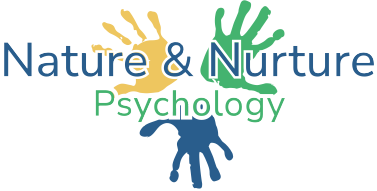As brain science progresses, we are learning more and more about the brain, and what things can affect its development. Over recent years, we have learnt more about the harmful effects of drugs and alcohol during pregnancy, and how this can impact the developing infant. Unfortunately, many people from all different backgrounds in life are not aware of the harmful impact of any amount of alcohol during pregnancy. Alcohol can affect the natural growth and maturation of the brain, and lead to difficulties similar to intellectual disability (learning disability).
Mothers from many walks of life often experience difficulty during pregnancy, relating to mental health issues, relationship conflict, stressful life events, financial worry, and pregnancy related concerns. These challenges may lead people to lean on coping strategies such as alcohol or drug use. Or if a woman becomes pregnant who already has an addiction, it can be very hard for this to stop when she becomes pregnant.
We now know that alcohol can disrupt brain development, and can lead to difficulties with emotions, behaviour, and learning. It used to be thought that only children with certain unusual facial features had been affected by alcohol exposure, but we now know that only a small amount of children will present with these features, and many children can have typical facial features, but still have been significantly affected by alcohol exposure. We must not discount the possibility of fetal alcohol disorder, just because a child does not present with fetal alcohol syndrome features.
What does FASD look like?
No two children with FASD are exactly alike, either behaviourally or physically. Children with FASD, despite challenges, will also have many strengths that need to be identified and built upon. Some characteristics may include:
– Issues with attention, concentration or hyperactivity.
– Academic issues, including specific deficits in mathematics & memory skills.
– Very specific language deficits e.g. poor receptive language.
– Short term or working memory issues
– Adaptive functioning issues that grow more significant with age (skills of daily living).
– Challenges with emotional regulation
– Social or relationship challenges including difficulty making or sustaining friendships
despite being sociable.
– Sensory impairments such as vision or hearing.
– Sensory sensitivities.
– Inconsistent performance – can do something one day but cannot the next.
– Lack of abstract reasoning, cause & effect logic, fails to generalise
– Poor sense of self and difficulty with theory of mind (perspective taking).
Key Points
- No amount of alcohol during pregnancy is ‘safe’, and all amounts of alcohol are toxic to the developing brain
- Alcohol during pregnancy is the biggest cause of learning disability in the UK
- Children who have had alcohol or drug exposed pregnancies may present with the difficulties outlined above. If you suspect that your child or a child that you care for has been affected, please contact your social worker / GP / local psychology service / school for more information
- It is key to not blame or shame mothers who have consumed alcohol during pregnancy, it is more helpful to focus on how to support women during what can be a very stressful time in their life, and to educate people about the harmful effects of alcohol.
Dr Sarah Saveker, Clinical Psychologist / Director of Nature and Nurture Psychology
If you have any further questions, or to find out more, please contact info@natureandnurturepsychology.com or take a look at our instagram @naturenurturepsychology for more tips and information.
